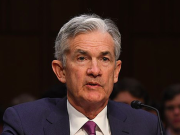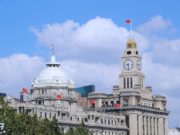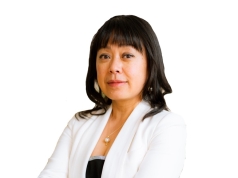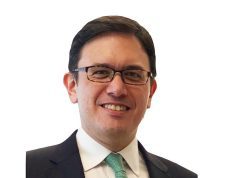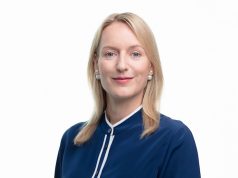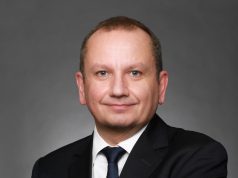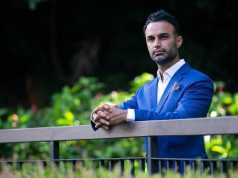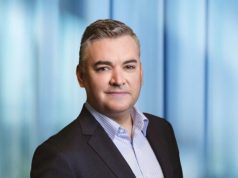The 2022 Investment Outlook: James Cheo HSBC Chief Investment Officer Southeast Asia of Global Private Banking & Wealth
The 2022 Investment Outlook
Where do you invest $1 million, $10 million, $100 million or $1 billion?

( Caproasia | Introduction – With COVID-19 (2020 to 2021), we had seen de-globalisation, emergence of new economies shaped by technologies, hybrid & remote work, accelerated implementation of climate change policies, new long-term plan by China including “Common Prosperity”, growth of digital securities & cryptocurrencies, cryptocurrencies clampdown, United States sanctions on Chinese companies and increased scrutiny on technology companies. Most nations have a supportive monetary policies to support jobs and economic stability, but also caused a wider income gap between the rich, upper-income, middle-income and the lower-income. In the short-run, we have economic stability, but in the long-run, we may face social problems that may cause political uncertainties, and therefore consequentially, create economic uncertainties.
In 2022, the impact of Russia & Ukraine on investments, businesses and global economy seems to have become the new focal point, overtaking the ongoing impact of COVID-19 pandemic. New issues arising from the impact of Russia & Ukraine include sanctions, asset write-down, defaults, business shutdown, geopolitical risks, increasing energy prices, inflation, stagflation and social divide.
- If you are a private investor, where do you invest $1 million, $10 million, $100 million in 2022?
- If you are a professional investor or institutional investor, where do you invest $10 million, $100 million or $1 billion in 2022?
We speak to leading Chief Investment Officers, Investment Managers and Portfolio Managers on their Investment Outlook for 2022. )
The 2022 Investment Outlook with James Cheo, HSBC Chief Investment Officer Southeast Asia of Global Private Banking & Wealth

“ On Private Equity: Outperformed most other private markets … we expect this to continue throughout 2022 “
2022 Investment Outlook:
- 2022 Investment Outlook: The global economy is in a mid-cycle stage and a Recession is not likely for 2022.
- Biggest Risk in 2022: A stagflation scenario is a risk for 2022.
- Portfolio Allocation: Equity allocation to neutral and focus on quality companies that can continue to generate steady earnings.
- By Sector: Because of the inflation and supply chain concerns, we are overweight on Materials and Energy but have downgraded Consumer Discretionary, and remain underweight on Industrials.
- By Region: We maintain a mild overweight to US and Canadian stocks, and also to EM Asia, where we see solid economic momentum – especially in Southeast Asia.
Key Highlights:
- On Energy Prices: As oil producers, both the US and Canada are more shielded from any energy price increase.
- On Currencies: We see upside in commodity currencies.
- On ESG: Improved financial performance due to ESG becomes more noticeable over longer time horizons.
- On Private Markets: Many primary funds, secondary transactions and co-investments delivered attractive return for investors.
- On Private Markets: Private markets as an asset class has showed its ability to adapt and prosper in a fast-changing environment.
- On Private Equity: Outperformed most other private markets and most measures of comparable public market performance and we expect this to continue throughout 2022.
- On Private Equity: Select private equity sponsors with the skills to actively engage with underlying companies to implement operational improvements and strategic initiatives.
- On Hedge Funds: Our largest overweight, due to their non-directional nature and ability to take advantage of volatility.
- On Crypto: The asset class has grown to a size that many investors find difficult to ignore.
- On Crypto: We find it difficult to model return, volatility and correlation assumptions with a high degree of confidence.
- On Crypto: Asset class is dominated by a few large cryptocurrencies, and tends to be less diversified than traditional asset classes.
Managing $1 million, $10 million, $100 million or $1 billion:
- HSBC 3×3 Framework: Quality, Income and Diversification
- Advice for investors: Diversify, diversify, diversify.
James Cheo, HSBC Chief Investment Officer Southeast Asia of Global Private Banking & Wealth

James Cheo is Chief Investment Officer, Southeast Asia for Global Private Banking & Wealth at HSBC. James Cheo is a member of the Global Investment Committee for Private Banking and Wealth Management and also a member of the Regional Investment Committee in Asia. In his role, he spearheads the development of investment strategies across all asset classes for private banking and wealth management clients in Southeast Asia. From 2004 to 2009, James served as Senior Economist at the Monetary Authority of Singapore, where he was part of the team that formulated policy actions for Singapore during the 2008 Global Financial Crisis.
HSBC Global Private Banking – As part of the HSBC Group, one of the world’s largest banking and financial services organisations, HSBC Global Private Banking seeks to be the leading international private bank for business owners and their families. It provides clients with wealth, business and family succession solutions in the largest and fastest growing markets around the world.
1. What are the key investment trends / topics in 2022, and beyond (to 2030)?

James Cheo: The global economy is in a mid-cycle stage and a Recession is not likely for 2022. However, mid-cycle means slower economic momentum, which has led us to adjust our sector exposure from mildly cyclical to a neutral stance. The momentum of earnings growth was already slowing somewhat earlier this year. With more economic uncertainty, we have therefore brought our equity allocation to neutral and focus on quality companies that can continue to generate steady earnings in a more volatile environment. Because of the inflation and supply chain concerns, we are overweight on Materials and Energy but have downgraded Consumer Discretionary, and remain underweight on Industrials.
Geographically, the US economic outlook looks much healthier, with good momentum. As oil producers, both the US and Canada are more shielded from any energy price increase, and drilling activity is already picking up. We maintain a mild overweight to US and Canadian stocks, and also to EM Asia, where we see solid economic momentum – especially in Southeast Asia. Taking all regions together, we continue to believe that globally, we’re still in a healthy mid-cycle growth stage.
“ The global economy is in a mid-cycle stage and a Recession is not likely for 2022 “
2. What are the biggest risks you see emerging in 2022, and beyond (to 2030)?
James Cheo: A stagflation scenario is a risk for 2022. While stagflation is not the base case of economic scenario we are looking for, but markets have in recent months been worried about it. But with much already priced in, and our expectation that growth will remain resilient, and inflation will plateau in coming quarters, we think only a number of the above market moves will continue. We see upside in commodity currencies for example, but think it is best to balance cyclicals with defensives, and value vs growth. We acknowledge that some of the data will probably continue to cause markets to worry about the scenario, and sentiment may flip-flop from time to time. This is another reason why we focus on building resilient portfolios through diversification to weather the volatility.
“ Biggest risk in 2022: A stagflation scenario is a risk for 2022 “
ESG & Sustainable Investments and Private markets (Private equity / Venture capital etc.) are key buzzwords that investors are hearing a lot of. Private Markets seems to be doing well while performance is less clear for ESG & Sustainable Investments.
3. How should investors look at both Private Markets Investments (Private equity / Venture capital etc.) and ESG & Sustainable & Investments?

James Cheo: We believe incorporating environmental, social, and governance (ESG) factors is an integral part of portfolio construction. This is because:
- Improved financial performance due to ESG becomes more noticeable over longer time horizons
- ESG integration as an investment strategy performs better than negative screening approaches
- ESG investing provides downside protection, especially during a social or economic crisis
- Sustainability initiatives at corporations appear to drive better financial performance due to mediating factors such as improved risk management and more innovation
“ On ESG: Improved financial performance due to ESG becomes more noticeable over longer time horizons “
Private markets as an asset class has showed its ability to adapt and prosper in a fast-changing environment. Many primary funds, secondary transactions and co-investments delivered attractive return for investors. Private Equity outperformed most other private markets and most measures of comparable public market performance and we expect this to continue throughout 2022.
Overall, we believe in the benefits of disciplined deployment into the private equity asset class, through a high-conviction approach and consistent vintage diversification. We expect 2022 to be another strong year for fundraising but we believe it is important to select private equity sponsors with the skills to actively engage with underlying companies to implement operational improvements and strategic initiatives. We believe manager selection will continue to be key to ensure strong PE returns and we maintain a selective approach focusing on best in class opportunities through conducting extensive operational and investment due diligence.
“ On Private Markets: Many primary funds, secondary transactions and co-investments delivered attractive return for investors “
4. How about for Cryptocurrency?
China is perhaps the largest country that have clamped down. United States financial system is clearly supporting cryptocurrency. Should investors invest? Will cryptocurrency post a critical risk to the financial system?

James Cheo: The crypto market has evolved substantially in recent years, and the asset class has grown to a size that many investors find difficult to ignore. With institutional adoption on the rise, individual investors too are beginning to assess whether, and how much, they should be allocating to this asset class. But compared to other asset classes, we find it difficult to model return, volatility and correlation assumptions with a high degree of confidence. Moreover, uncertainty remains, as the asset class is dominated by a few large cryptocurrencies, and tends to be less diversified than traditional asset classes. Allocating via various fund structures, hedge funds, venture capital and stocks benefiting from blockchain adoption or related investment themes may be a preferable implementation option for most investors.
“ On Crypto: Asset class is dominated by a few large cryptocurrencies, and tends to be less diversified than traditional asset classes “
5. For UHNW / HNW investors, how should they invest $1 million, $10 million or $100 million?
And for professional investors / sophisticated investors, how should they invest $10 million, $100 million, $1 billion? Should they take more risks?

James Cheo: Amid increased uncertainty, investors are looking for greater resilience in their portfolios, and we have redefined the concept to fit the current circumstances. A first step is to track closer to benchmark as long as visibility is low. We have done the same, tactically reducing our equity allocation to neutral and moving our sector positioning from slightly cyclical to balanced, while also maintaining our balance between growth and value stocks.
“ HSBC 3×3 Framework: Quality, Income and Diversification “
But building resilience goes beyond this, and our 3×3 framework focuses on quality, income and diversification.
First, quality starts with picking companies that have a strong balance sheet and the margin power to generate strong earnings, even as input costs rise and growth slows somewhat. Earnings delivery will remain a crucial driver of equity markets in 2022, and so far, the earnings season has shown that there are plenty of companies that can match or beat expectations. Companies that pay close attention to ESG-related opportunities and risks should also be better positioned to deliver sustained earnings growth in the medium term.
The second ingredient in our 3×3 strategy is income, because it is more stable than capital appreciation, and can help dampen portfolio volatility. We find income from fixed income, where we are overweight on short dated high yield and EM hard currency corporate bonds, and have tactically also added some better rated investment grade bonds. Dividend stocks can add to the search for income, and the spike in volatility provides an opportunity to generate income while offering some degree of protection.
The final element of the 3×3 strategy is diversification, which is a core component of our investment philosophy, but which we have further enhanced. It all starts with our strategic asset allocation across asset classes, including alternatives. Hedge funds are currently our largest overweight, due to their non-directional nature and ability to take advantage of volatility. We are also diversifying our sector and style exposure and avoid overly concentrated single-name risk.
” Hedge funds are currently our largest overweight “
6. Any good advice for investors?

James Cheo: Diversify, diversify, diversify.
“ Advice for investors: Diversify, diversify, diversify “
Thank you James Cheo for sharing your valuable insights at The 2022 Investment Outlook. James Cheo is HSBC Chief Investment Officer, Southeast Asia for Global Private Banking & Wealth. James Cheo is a member of the HSBC Global Investment Committee for Private Banking and Wealth Management and also a member of the Regional Investment Committee in Asia.
James Cheo, HSBC Chief Investment Officer Southeast Asia of Global Private Banking & Wealth

James Cheo is Chief Investment Officer, Southeast Asia for Global Private Banking & Wealth at HSBC. James Cheo is a member of the Global Investment Committee for Private Banking and Wealth Management and also a member of the Regional Investment Committee in Asia. In his role, he spearheads the development of investment strategies across all asset classes for private banking and wealth management clients in Southeast Asia. From 2004 to 2009, James served as Senior Economist at the Monetary Authority of Singapore, where he was part of the team that formulated policy actions for Singapore during the 2008 Global Financial Crisis.

HSBC Global Private Banking
As part of the HSBC Group, one of the world’s largest banking and financial services organisations, HSBC Global Private Banking seeks to be the leading international private bank for business owners and their families. It provides clients with wealth, business and family succession solutions in the largest and fastest growing markets around the world. HSBC Global Private Banking is the marketing name for the private banking business conducted by the principal private banking subsidiaries of the HSBC Group. HSBC Holdings plc, the parent company of HSBC, is headquartered in London. HSBC serves customers worldwide from offices in 64 countries and territories in its geographical regions: Europe, Asia, North America, Latin America, and Middle East and North Africa. With assets of $2,969 billion at 30 September 2021, HSBC is one of the world’s largest banking and financial services organisations.
Sign Up / Register
Caproasia Users
- Manage $20 million to $3 billion of assets
- Invest $3 million to $300 million
- Advise institutions, billionaires, UHNWs & HNWs
Caproasia Platforms | 11,000 Investors & Advisors
- Caproasia.com
- Caproasia Access
- Caproasia Events
- The Financial Centre | Find Services
- Membership
- Family Office Circle
- Professional Investor Circle
- Investor Relations Network
Monthly Roundtable & Networking
Family Office Programs
The 2025 Investment Day
- March - Hong Kong
- March - Singapore
- July - Hong Kong
- July - Singapore
- Sept- Hong Kong
- Sept - Singapore
- Oct- Hong Kong
- Nov - Singapore
- Visit: The Investment Day | Register: Click here
Caproasia Summits
- The Institutional Investor Summit
- The Investment / Alternatives Summit
- The Private Wealth Summit
- The Family Office Summit
- The CEO & Entrepreneur Summit
- The Capital Markets Summit
- The ESG / Sustainable Investment Summit



